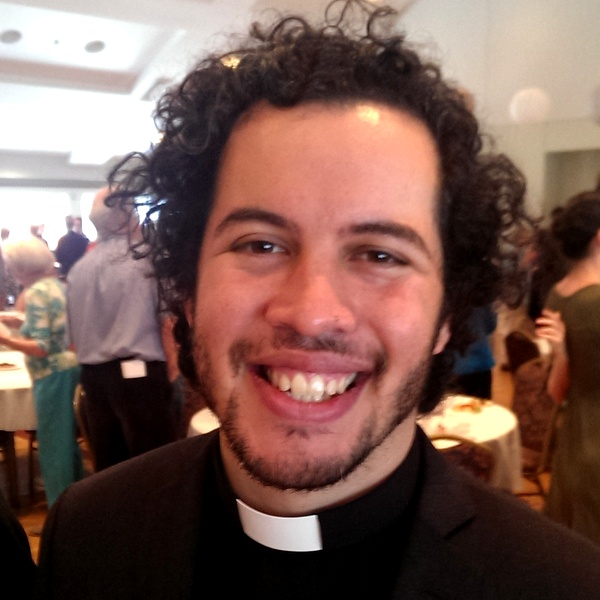Jeremiah 29:1, 4-7
Earlier this week I bought plane tickets to go visit my parents in Portland Oregon. I am excited to see my family here soon. One of the things I miss about my parents’ home is a minor, insignificant thing … the smell of fresh-brewed coffee….
Sermons (Page 53)
The Rev. Candy Snively reflects on Luke 17:5-10: “The apostles said to the Lord, ‘Increase our faith.’ They appear to be a bit overwhelmed by his teaching, and they turn to Jesus and ask for an increase in their faith. I think most of us have struggled with this at some point in our lives. If I just had more faith, I wouldn’t have so many questions or doubts. If I just had more faith, I would be a better person. But faith is not about size or quantity.”
Fr. George reflects on Luke 16:19-31: “The rich man didn’t hate Lazarus. He didn’t have any feelings about Lazarus. The rich man was just oblivious to Lazarus; he just wasn’t aware. […] Where are the places in our lives where there are people at the gate who we’re oblivious to?”
Rev. Javier A. Bautista discusses Luke 16:1-13: “When I think of the wonder of the world God created in abundance, and I compare it to the world I encounter in the gospel today, a world of seeming scarcity, of being wily with resources, I’m taken aback a little bit. There’s a marked contrast between the faithful stewards of creation, the intended purpose for humankind, and the dishonest manager we meet in our story today.”
Luke 15:1-10
“All are welcome.” It’s a sign we have hanging outside the entrance of our church… It so defines what we think St. Paul’s is about… To me, “all are welcome” is the message of the gospel; “all are welcome” is the message of Jesus.
Luke 14:25-33
A couple of months ago, I shared some thoughts on who we are and who we want to be… Today, I want to share some thoughts on how we define ourselves as individuals…. We have so many ways of defining our identity… But one way we determine our identity that stands out from the rest is our possessions, our stuff, and Jesus says we have to give it all up…
Luke 14:1, 7-14
George Washington, one of the founding fathers and the first president of the United States, transcribed a little book as a school exercise sometime before he was 16 years old. It is entitled Rules of Civility & Decent Behavior in Company and Conversation … The gospel today sounds a little like Washington’s rules. It reads like a lesson in table manners… but there’s something more at stake here.
Luke 13:10-17
In my reading and studying, I came across a phrase recently that really struck me: “Christianity is still in its infancy.” You might say to yourself, “what a long infancy! We’ve been around for 2,000 years.” But there’s so much more for us to be able to grow into.
Luke 12:49-56
I have often mentioned how, as a late bloomer, I went back to college while our sons were in high school. I worked full time, so I would take evening classes at Barry University…
Hebrews 11:1-3, 8-16; Luke 12:32-40
About a week ago, I met up with a group from St. Paul’s, right in front of this church, and we hopped onto a 15-passenger van and headed down to Newton Grove. We visited the Episcopal Farmworker Ministry…







